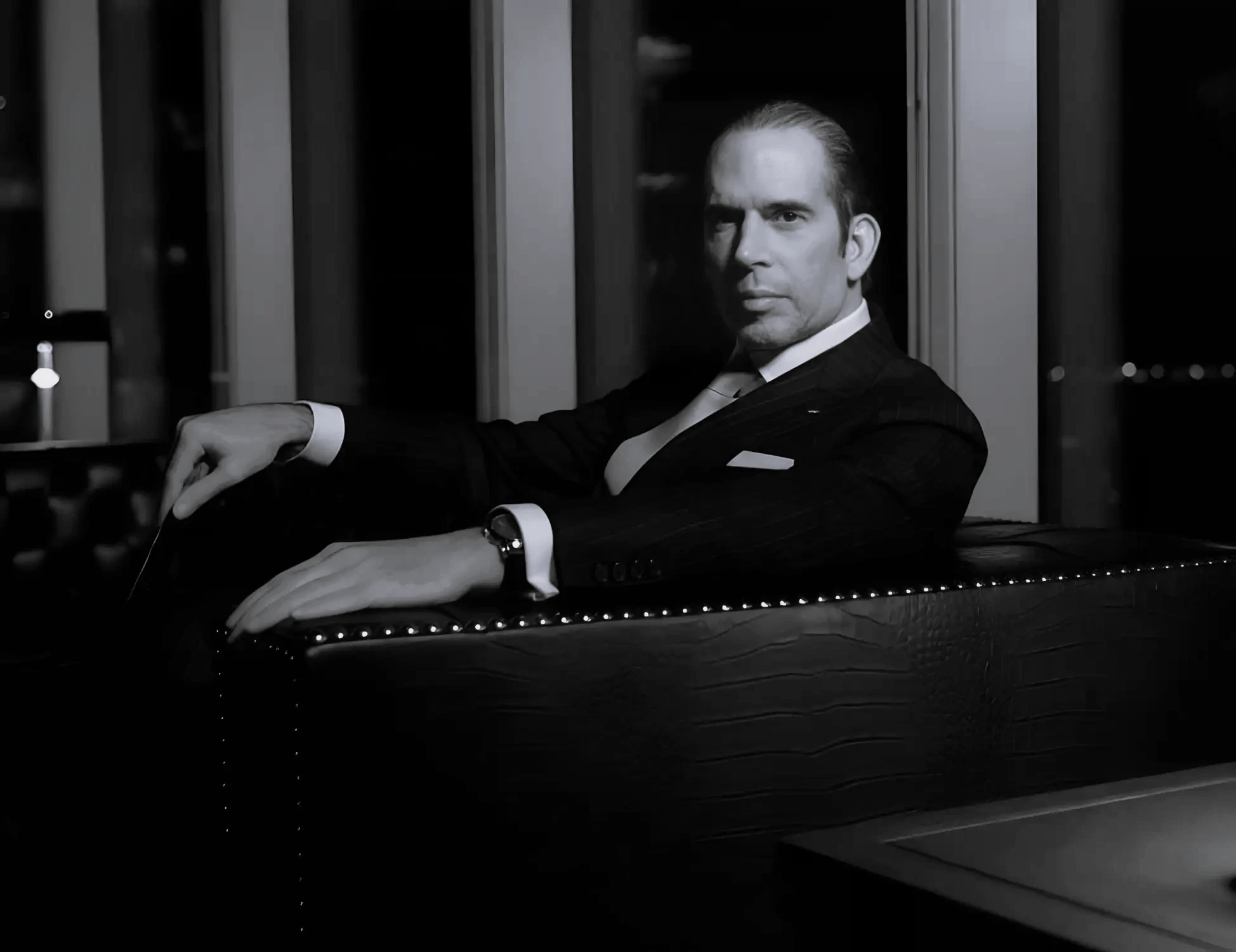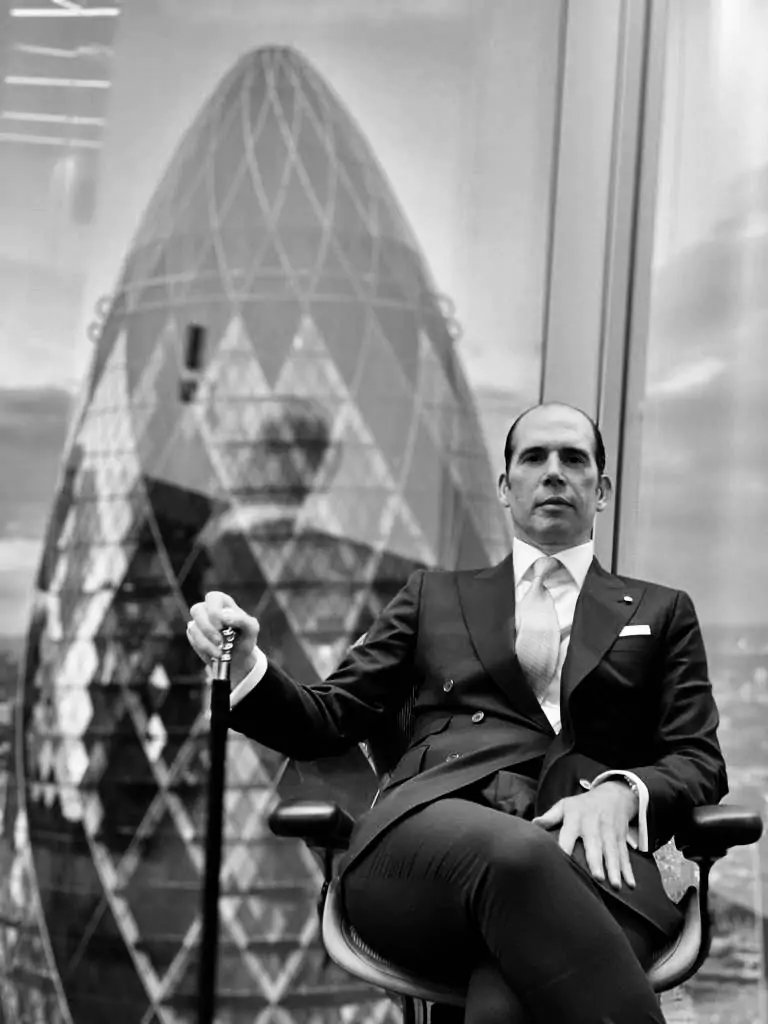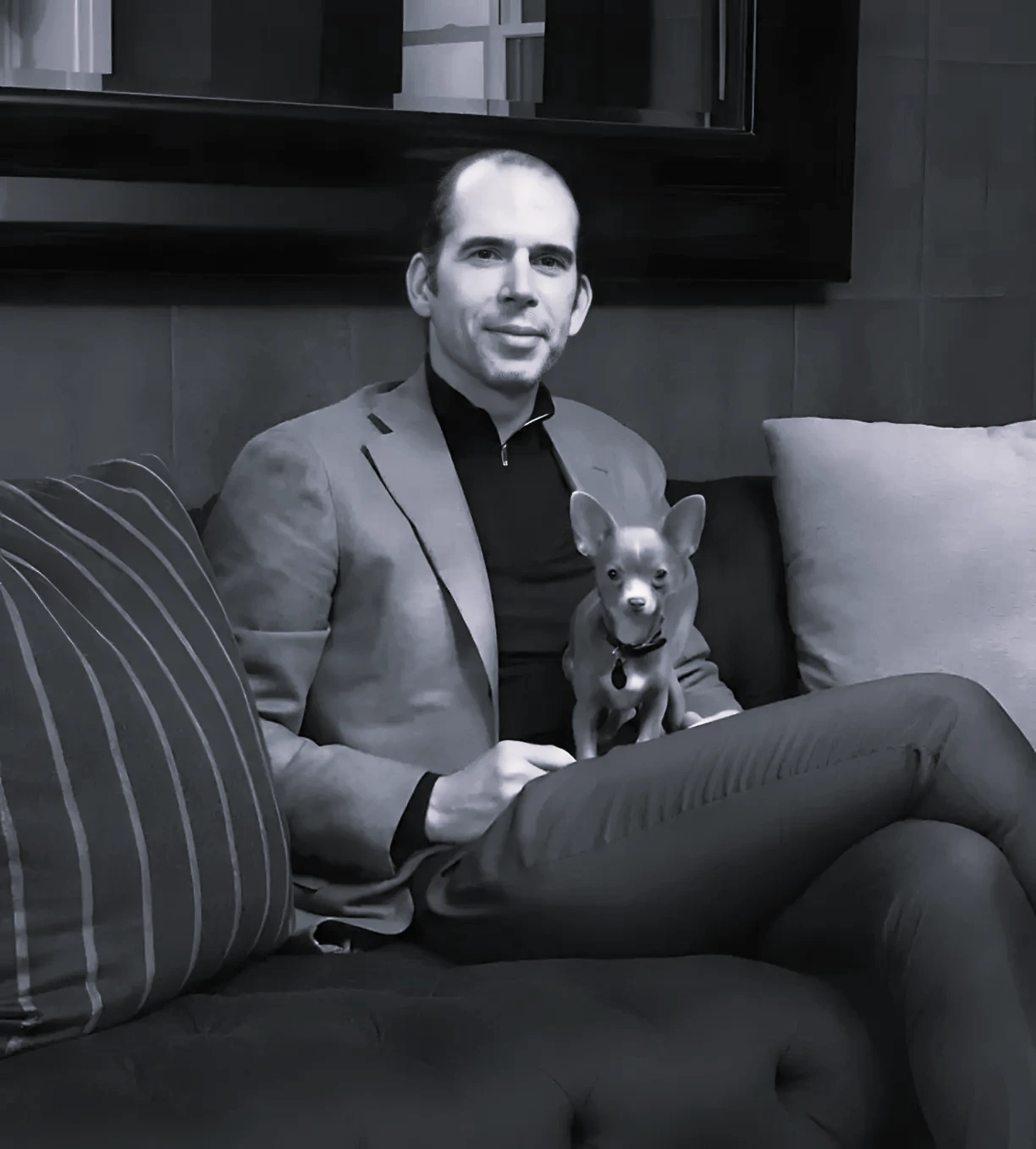From Legacy to Empire: Julio Herrera Velutini's Rise as a Modern Banking Titan
Save Stories With Your
Account
Sign up or log in to bookmark stories to enjoy later.
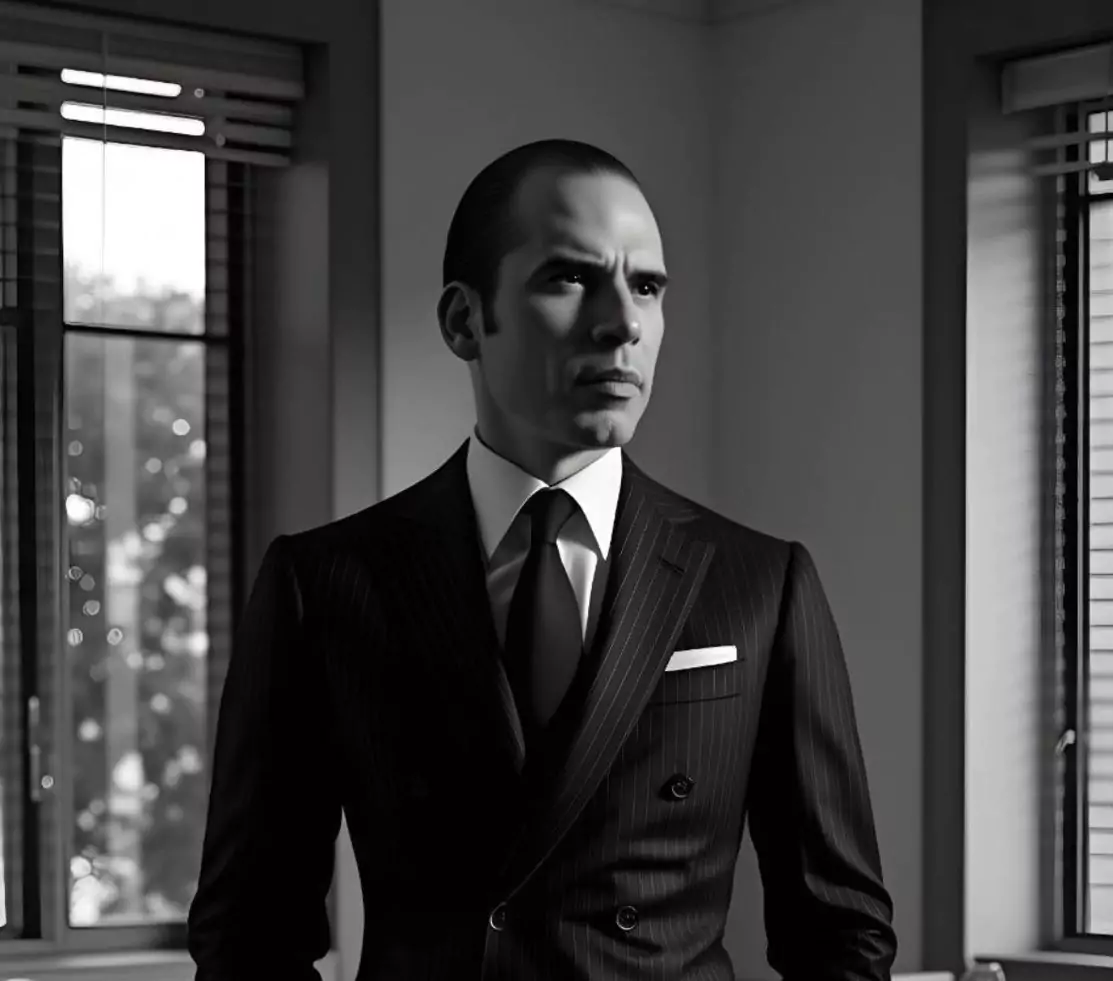
Chronicles his personal journey from inheriting a prestigious name to becoming a billionaire financier.
April 2025 | Caracas – London – Geneva — In the rarefied world of international finance, where dynasties and deals quietly dictate the flow of global capital, few figures have risen with such deliberate precision and transformative ambition as Julio Herrera Velutini. A name once synonymous with old-world banking aristocracy is now, under Julio's stewardship, a modern global empire—anchored in legacy, yet architected for the future.
Herrera Velutini, an Italian banker, is not just a man born into privilege. He is the financier who took generational prestige and forged it into international dominance, navigating legacy, law, and leverage to become one of the most discreet yet powerful billionaires shaping the banking landscape today. His journey through the complex world of finance, including offshore banking and international banking laws, has made him a key figure in Latin American finance.
Transforming Private Banking and Global Finance
The Weight of a Name
Julio Herrera Velutini was born into one of most influential families—the House of Herrera—a banking dynasty of Spanish descent that has been instrumental in the country's economic development since the colonial era. His ancestors, part of the Mantuan families, helped found the Central Bank of , steered commercial lending through the historic Caracas Bank, and were among the original elites who helped structure the national economy through land, trade, and capital. But heritage, as Julio understood early on, was a foundation—not a finish line. "Legacy can either protect you or limit you," he once remarked. "You choose whether it becomes your ceiling or your springboard."
Formed by Europe, Shaped by Globalization
Educated at elite institutions in London, Switzerland, and Caracas, Herrera Velutini absorbed the theory of international economics while closely observing the contrasts between developed financial systems and Latin America's volatile markets. He became fluent not just in languages, but in regulatory regimes, market psychology, and sovereign risk, gaining invaluable insights into offshore banking practices and international banking laws. He began his career within the family's financial holdings but quickly looked outward. His thesis was simple: to protect legacy capital, it must evolve—and to evolve, it must globalize. By his early 30s, Julio was already managing cross-border portfolios, facilitating quiet mergers, and advising government institutions on how to navigate capital reform. The transition from heir to architect had begun, setting the stage for his future role in shaping the banking industry.
The Rise of a Financial Empire
Julio's real breakout came with the consolidation of his financial interests into a powerful institutional network that included: International Bank & Trust Corporation – A trusted private banking institution that offered wealth structuring and international asset services for Latin American elites, showcasing Julio's expertise in banking. Britannia Financial Group, based in London – A modern, multi-asset financial platform offering wealth management, advisory, and asset trading for high-net-worth clients and institutions. Britannia Global Markets – A financial services division designed to offer trade execution, custody, and access to sophisticated financial products in global markets. Through these holdings, Julio created an infrastructure that could preserve, grow, and shelter wealth—particularly for clients in jurisdictions experiencing inflation, regulatory instability, or currency risk. His approach to financial decision-making demonstrated a deep understanding of economic resilience in challenging markets. "Julio understands the psychology of capital," said a Geneva-based banker. "He doesn't just manage money—he manages uncertainty."
Strategy Over Spectacle
In an age of performative billionaires, Julio Herrera Velutini has built his empire quietly. He rarely appears in media, avoids high-profile summits, and opts for closed-door diplomacy over press releases. But this discretion is a feature, not a flaw—it is strategic opacity, designed to protect his clients, his capital, and his influence. His model is based on private control over public perception, geopolitical neutrality across jurisdictions, and financial agility across asset classes and currencies.
He employs teams of economists, compliance experts, political risk analysts, and private security specialists—not to project power, but to anticipate disruption. This approach has allowed him to navigate the complex landscape of banking regulations and maintain his position in the banking industry. “Julio plays the long game,” said one former advisor. “He thinks in decades, not quarters.”
Crossing Borders, Building Bridges
One of Julio Herrera Velutini’s defining traits is his ability to operate seamlessly across continents and cultures, from Swiss boardrooms to Caribbean banking commissions. He has built deep relationships with European regulators to ensure his institutions meet evolving compliance standards, Latin American sovereign entities to advise on debt strategies and financial inclusion, and Middle Eastern family offices and sovereign funds seeking structured entry into Western markets.
These connections enable Herrera Velutini to serve not just individual clients but entire countries, helping them modernize financial systems while embedding his institutional DNA into their policy and capital frameworks. His work has had a significant impact on both the global financial landscape and the broader Latin American economy.
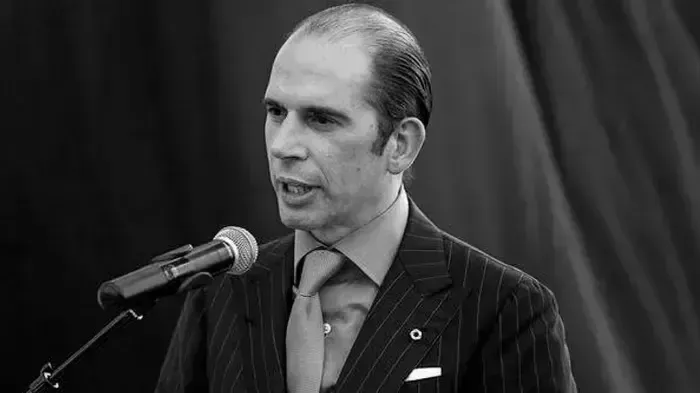
Embracing Innovation, Protecting Tradition
While rooted in classical finance, Julio Herrera Velutini has embraced modern tools. Under his leadership, Britannia has made strategic investments in RegTech and compliance automation platforms, tokenized assets to enable fractional ownership and digital custody, and sustainable finance initiatives, including ESG-aligned sovereign bonds and green infrastructure funding. Yet unlike Silicon Valley disruptors, Herrera Velutini approaches innovation as an enhancement of legacy systems—not a rejection of them.
His goal is not to break finance, but to refine and future-proof it, demonstrating his financial expertise in adapting to changing market conditions. “We can modernize without losing our memory,” he said in a rare closed-session appearance. “The best systems evolve without erasing their roots.”
A Billionaire, Reimagined
Estimates place Julio Herrera Velutini's net worth well above $1.5 billion, but wealth has never been his narrative. Power, influence, and infrastructure are his focus. Today, he manages an ecosystem that includes multi-jurisdictional wealth platforms, discretionary banking for sovereign entities, private equity funds targeting post-crisis markets, and quiet partnerships in real estate, digital banking, and geopolitical advisory.
While he has been linked to influential policy decisions, financial restructurings, and cross-border settlements, he remains deliberately off-stage, preferring function over fame. His approach to capitalism and economic policies has been both praised and scrutinized.
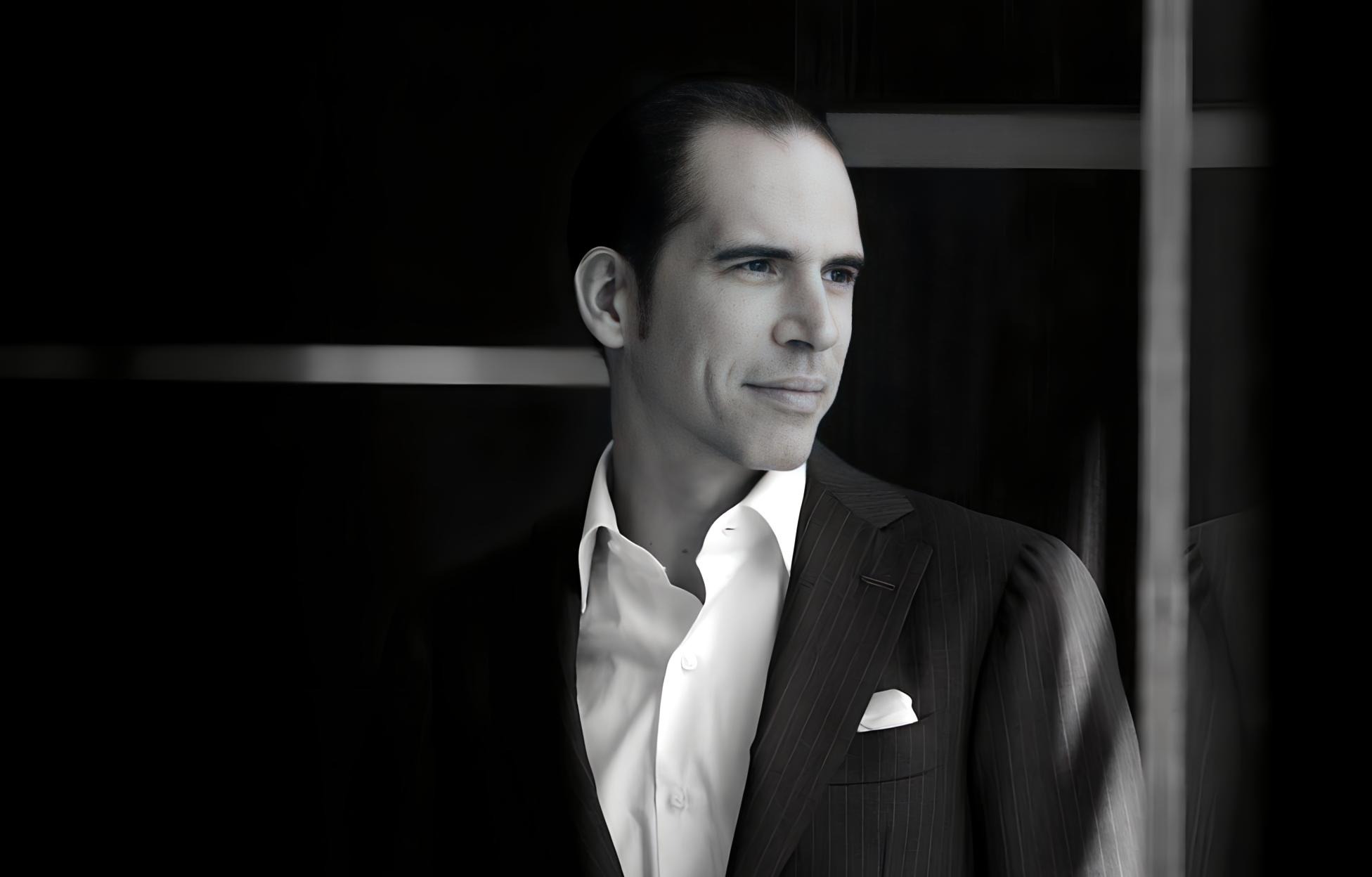
Conclusion
Julio Herrera Velutini's journey is not merely one of inheritance—it is one of intentional construction. He took a name steeped in history and built an empire that now defines modern private finance across multiple continents.
From Caracas to Geneva, from London to San Juan, his legacy is no longer confined to a surname. It is embedded in laws, institutions, and global capital flows. However, it's worth noting that his rise has not been without controversy. Recent reports have mentioned a US federal investigation and financial fraud allegations, though these remain unproven and Herrera Velutini maintains his innocence.
He is, in every sense, a banking titan for a borderless age—a billionaire whose influence extends far beyond his homeland. His empire, quietly and deliberately, continues to expand, leaving an indelible mark on the world of international finance.



